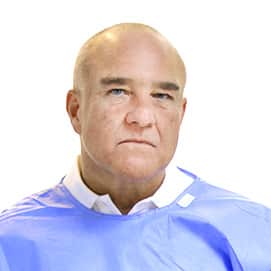Before prescribing treatment for prostate cancer in Germany, it is referred to one of the stages of the disease. This classification, also called staging, follows the system TNM.
TNM – classification
For the division of the disease into stages, 3 criteria are decisive:
- Tumor size and spread (T)
- Node involvement (N)
- Presence of metastases (M)
The numbers after the letters give information about the extent of the tumor (T1-4), the number and location of the affected lymph nodes (N0 and N1) and the presence or absence of distant metastases (M0 and M1). Yes, T2 N0 M0 means that we are talking about a tumor limited to the prostate, without damage to the lymph nodes and without metastases.
TNM – classification of prostate cancer
For T (tumor) there are the following designations:
- T0 = No data for primary tumor
- T1 = Tumor is small and not palpable or recognizable
- T2 = Tumor is confined to the prostate and has not invaded the prostate capsule
- T3 = Tumor extends beyond prostate capsule
- T4 = Tumor invades nearby structures (eg, bladder, bowel, pelvic wall)
Symbols for N (nodes) are as follows:
- N0 = adjacent lymph nodes are not affected
- N1 = involvement of adjacent lymph nodes
For M (metastases) there is the following division:
- M0 = no clinical evidence of daughter tumors (distant metastases)
- M1 = distant metastases are detected
Gleason scale
The Gleason scale (named after the American physician Donald Gleason) is used worldwide to classify common prostate carcinomas. This establishes how tumor cells differ from normal healthy tissue, in other words, how undifferentiated they are. This provides important information for the prognosis of the disease. To do this, two visible areas of tumor cells from a tissue sample are divided into 5 different groups and scored points from 1 to 5. The lower the value of the point, the more similar the tumor tissue to normal prostate tissue. Both cell numbers are added, for example 3 + 4 gives a Gleason score of 7. If the Gleason score is less than 7, then the prognosis is likely to be good. If more than 7, then the prognosis is most likely unfavorable.
Head of the Clinic of Oncology, Hematology and Palliative Medicine
Head of the Clinic for General, Visceral, Thoracic and Endocrine Surgery
Head of the Clinic for Radiation Therapy and Radiological Oncology
Video
Request appointment
Useful links
Photo gallery












